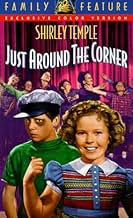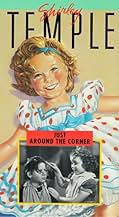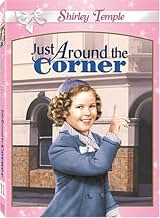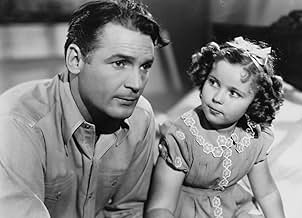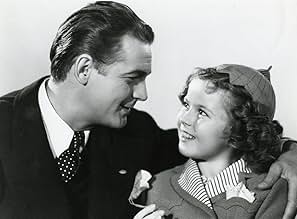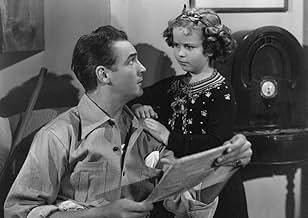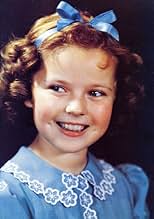Pour faire le bonheur de son père, un architecte ruiné par un krach boursier, une petite fille entreprend de décider un vieux financier bourru à l'aider.Pour faire le bonheur de son père, un architecte ruiné par un krach boursier, une petite fille entreprend de décider un vieux financier bourru à l'aider.Pour faire le bonheur de son père, un architecte ruiné par un krach boursier, une petite fille entreprend de décider un vieux financier bourru à l'aider.
Claude Gillingwater
- Samuel G. Henshaw
- (as Claude Gillingwater Sr.)
Benny Bartlett
- Milton Ramsby
- (as Bennie Bartlett)
Brooks Benedict
- Reporter
- (uncredited)
Orville Caldwell
- Henshaw Assistant
- (uncredited)
Eddie Conrad
- French Tutor
- (uncredited)
Hal K. Dawson
- Reporter
- (uncredited)
Helen Dickson
- Mrs. Ramsby's Card Playing Friend
- (uncredited)
Jack Egger
- Gang Member
- (uncredited)
Mary Forbes
- Miss Vincent
- (uncredited)
Jack Gargan
- Reporter
- (uncredited)
Histoire
Le saviez-vous
- AnecdotesThis was the last of four films to pair Shirley Temple with Bill Robinson.
- GaffesWhen penny is asking Gus where is Borneo he says it's near Gibraltar, however, Borneo is island in Asia and Gibraltar is on Spain south coast and the approximate distance between them is 12,000km.
- ConnexionsFeatured in Hidden Hollywood: Treasures from the 20th Century Fox Film Vaults (1997)
- Bandes originalesThis Is a Happy Little Ditty
(1938) (uncredited)
Music by Harold Spina
Lyrics by Walter Bullock
Performed by Shirley Temple, Joan Davis, Bert Lahr, and Bill Robinson
Commentaire en vedette
I would agree with other reviewers who felt this was a mediocre Shirley Temple outing--neither particularly good nor particularly bad. It's worth seeing, however, some might have a hard time stomaching the schmaltz and propaganda--the film does lay it on pretty thick.
The film begins with Shirley being taken from her boarding school and sent home. It seems her father (no mention is EVER made of the mother, by the way) has lost his fortune and cannot afford to keep her in the school. But, as Shirley is MORE optimistic and chipper than Pollyanna or Ned Flanders, she sees this as all a grand adventure. Through the course of the film, she remains unabashedly optimistic and does her best to make everyone have a happily ever after--even the nasty old man she refers to as 'Uncle Sam'! I liked and disliked the film. The humor was very sweet and you can't help loving Shirley. Additionally, the theme song throughout the film is very peppy and you'll most likely find yourself humming along with it. But, on the other hand, the optimism angle wore a bit thin, as did the stuff about Uncle Sam and the Depression. In fact, it came off, at times, as pure propaganda. Had the intent been disguised a bit, it would have made it all less obvious.
If you do see the film, pay attention to the fund-raiser at the end. Shirley had a huge bag of nickels from all the kids who paid to see it. However, when you see the ridiculous sets and costumes, the kids should have paid at least $100 a ticket to break even!! Silly, but also kind of funny.
Additionally, look for Charles Farrell in a rare starring appearance. Although Farrell was arguably the most famous male star of the late silent age, by 1938 his career was pretty much over in Hollywood. Why? I have no idea nor is there any indication why on his IMDb page. Also, this is the fourth and final film pairing Shirley and Bill Robinson--and to watch them dance, that's more than enough reason to watch the movie.
The film begins with Shirley being taken from her boarding school and sent home. It seems her father (no mention is EVER made of the mother, by the way) has lost his fortune and cannot afford to keep her in the school. But, as Shirley is MORE optimistic and chipper than Pollyanna or Ned Flanders, she sees this as all a grand adventure. Through the course of the film, she remains unabashedly optimistic and does her best to make everyone have a happily ever after--even the nasty old man she refers to as 'Uncle Sam'! I liked and disliked the film. The humor was very sweet and you can't help loving Shirley. Additionally, the theme song throughout the film is very peppy and you'll most likely find yourself humming along with it. But, on the other hand, the optimism angle wore a bit thin, as did the stuff about Uncle Sam and the Depression. In fact, it came off, at times, as pure propaganda. Had the intent been disguised a bit, it would have made it all less obvious.
If you do see the film, pay attention to the fund-raiser at the end. Shirley had a huge bag of nickels from all the kids who paid to see it. However, when you see the ridiculous sets and costumes, the kids should have paid at least $100 a ticket to break even!! Silly, but also kind of funny.
Additionally, look for Charles Farrell in a rare starring appearance. Although Farrell was arguably the most famous male star of the late silent age, by 1938 his career was pretty much over in Hollywood. Why? I have no idea nor is there any indication why on his IMDb page. Also, this is the fourth and final film pairing Shirley and Bill Robinson--and to watch them dance, that's more than enough reason to watch the movie.
- planktonrules
- 2 avr. 2013
- Lien permanent
Meilleurs choix
Connectez-vous pour évaluer et surveiller les recommandations personnalisées
- How long is Just Around the Corner?Propulsé par Alexa
Détails
- Durée1 heure 10 minutes
- Couleur
- Rapport de forme
- 1.37 : 1
Contribuer à cette page
Suggérer une modification ou ajouter du contenu manquant

Lacune principale
By what name was La vie en rose (1938) officially released in Canada in English?
Répondre
